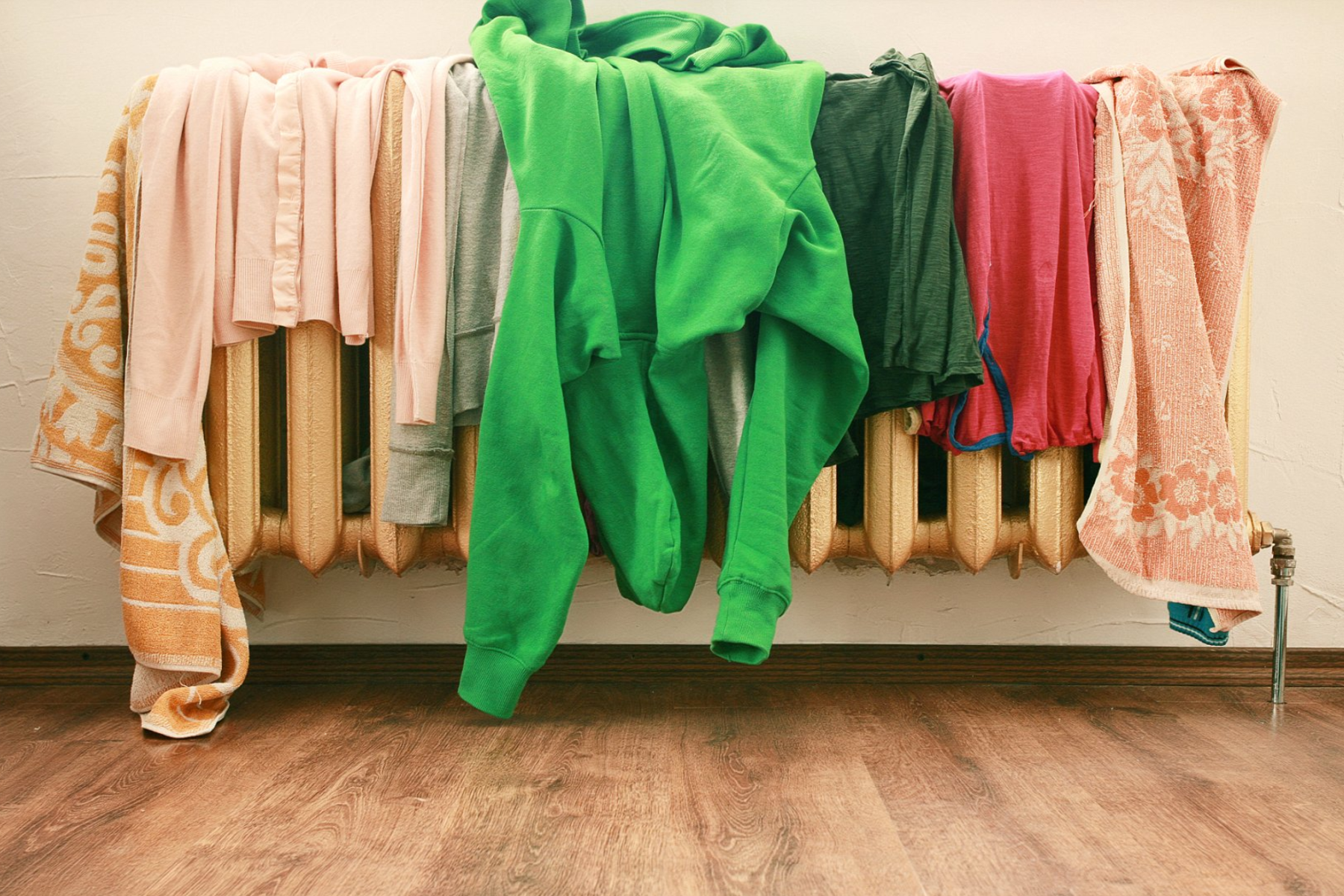Drying clothes on a radiator is a common practice, especially during colder months when outdoor drying may not be feasible. However, what may seem like a convenient solution can have some serious drawbacks.
In this blog, we'll explore why drying clothes on a radiatorradiator is a bad idea and how it can negatively impact both your home, health, and your clothing.

The Impact On Radiator Efficiency
Radiators are designed to heat our homes efficiently. However, when we drape wet clothes over them, their ability to distribute heat effectively is compromised. The damp garments act as a barrier, preventing the radiator from releasing warmth into the room. As a result, your heating system needs to work harder to maintain a comfortable temperature, leading to increased energy consumption and higher utility bills.
Potential Damage To Radiators
Drying clothes directly on radiators can have lasting effects on their condition. The moisture from the clothes can seep into the radiator's metal, promoting corrosion and rust. Over time, this can weaken the radiator and reduce its lifespan. In the long run, you may find yourself having to replace radiators more frequently, which can be a costly affair.
Fire Hazard And Safety Concerns
One of the most significant risks associated with drying clothes on radiators is the potential fire hazard. If clothes are left too close to hot radiators, they can ignite and lead to a dangerous fire. This is especially concerning if you leave your home unattended or forget to remove the clothes promptly. To prevent accidents, it's crucial to follow safety guidelines and never leave clothes unattended on radiators.
Indoor Air Quality And Health Risks
Drying clothes on radiators can increase indoor humidity levels significantly. Excess moisture in the air creates an ideal environment for mold and mildew growth, which can negatively impact indoor air quality. Individuals with respiratory issues or allergies may experience worsened symptoms in such conditions.
Studies conducted by experts reveal that hanging clothes on drying frames or draping them over warm radiators can increase moisture levels in our homes by up to 30 percent. Unfortunately, this creates the perfect environment for mold spores to thrive, especially a particular type known as aspergillus fumigatus. This specific mold can lead to severe and potentially fatal lung infections.
Stains And Discoloration
Clothes in direct contact with radiators can develop unsightly stains. The heat from the radiator can cause colors to bleed, leading to discoloration and damage to the fabric. Removing these stains can be challenging, and your favorite clothing items may end up ruined, impacting your overall wardrobe.
The high heat from radiators can also cause fabric fibers to break down, leading to premature wear and tear. The colors of your clothes may also fade faster when exposed to continuous heat. As a result, your clothing may lose its quality and become less durable over time.
Energy Efficiency
Using radiators to dry clothes is an inefficient way to utilize energy. By adopting this practice, we waste valuable resources and contribute to higher carbon emissions. Considering the environmental impact of excessive energy usage, it is essential to seek alternative, greener methods for drying clothes.
We Recommend Heated Towel Rail As A Better Alternative
Opting for a heated towel rail in a well-ventilated laundry or utility room offers a faster and more efficient indoor clothes drying solution.
With improved heat distribution, it effectively prevents mold growth and reduces energy costs when compared to using a standard vertical radiator and horizontal radiator.
Additionally, heated towel rails are versatile and not restricted to bathrooms; they can be utilized in laundry rooms and utility spaces, providing both convenience and warmth for drying clothes and towels.
Check out our top-quality heated towel radiators today!
In conclusion, drying clothes on a radiator may seem like a convenient solution, but it comes with several significant drawbacks. From reduced radiator efficiency and potential damage to safety concerns, it's clear that this practice is best avoided. By adopting more energy-efficient and safe drying methods, we can protect both our homes and our clothing, while also being mindful of our impact on the environment.
Frequently Asked Questions:
- Is It Safe To Leave Clothes On A Radiator Overnight?
Leaving clothes on a radiator overnight is generally not safe. It can create a fire hazard, especially if the clothes are in direct contact with the hot radiator for an extended period. The risk of fire increases when clothes are left unattended. To ensure safety, it's best to remove clothes from the radiator promptly once they are dry. - Does Drying Clothes On A Radiator Shrink Them?
Drying clothes on a radiator can potentially cause them to shrink, especially if the heat is too high. High temperatures can lead to the fibers in the fabric contracting, resulting in shrinkage. To avoid this, it's advisable to use a gentler drying method like air-drying or a clothes drying rack. - Does Drying Clothes On Radiators Cause Mold?
Drying clothes on radiators can increase indoor humidity levels, creating a favorable environment for mold and mildew growth. If the room is poorly ventilated, and clothes are left on the radiator for extended periods, moisture can accumulate, leading to the development of mold and mildew on both the clothes and the surrounding areas. Proper ventilation and ensuring clothes are dried thoroughly are essential in preventing mold issues. - How Long Do Clothes Take To Dry On A Radiator?
The time it takes for clothes to dry on a radiator depends on various factors, such as the room's temperature, humidity, and the fabric type of the clothes. Generally, lightweight fabrics may dry relatively quickly, possibly within a few hours, while thicker or heavier fabrics may take longer, potentially a whole day or more. - Is It Cheaper To Dry Clothes On A Radiator?
Drying clothes on a radiator may seem cost-effective in terms of not using a dryer, but it can actually be less efficient and more expensive than alternative methods. As mentioned earlier, drying clothes on radiators reduces the efficiency of heating the room, leading to increased energy consumption and higher utility bills. Opting for air-drying or using a clothes drying rack can be a more economical and environmentally friendly option in the long run.






















